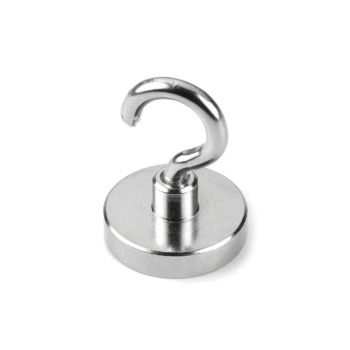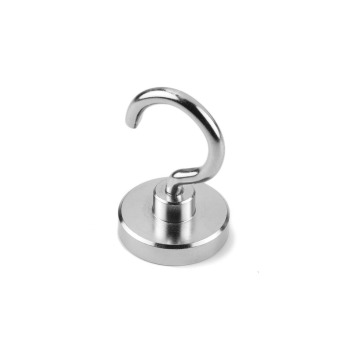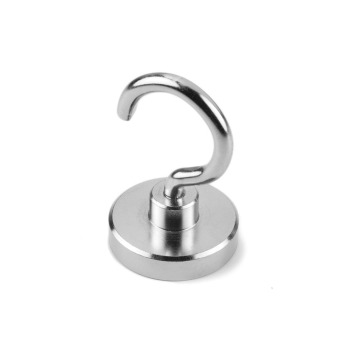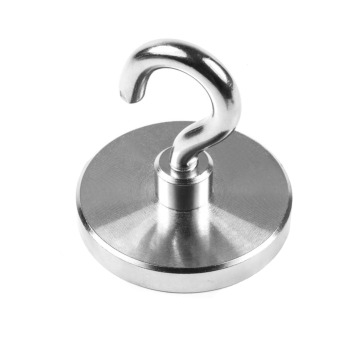Magnet Fishing 101: What to do with magnet fishing finds?
A fun hobby that suits people of all ages and genders is magnet fishing. If you have a long rope, powerful magnet, and live near some form of body of water, you have the chance to uncover some really cool things. Not only do you get to have fun and find something new, but you are also helping the environment.
What to do with magnet fishing finds? While you may not necessarily find gold or silver directly, as these are not magnetic materials in raw shape, you may be able to pick up objects on jewelry chains or containers in which they may reside in. Other cool finds include old weapons, chains, safe boxes, tools, keys, or phones, etc, that can be fixed into something new.
Given all these cool finds, there is a wide variety of things to do with them whether you want to keep or resell the objects. It can sometimes be difficult to find value in old objects, but determining their value depends on the object itself and how you be able to alter it to make it useful.
Related products - Magnet Fishing 101: What to do with magnet fishing finds?
-
Pot magnet with hook, Ø32 mm.
MAGZ-1307-P

Strength 30.0 kg. 9,56 11,95 EUR
In stock -
Pot magnet with hook, Ø40 mm.
MAGZ-1310-P

Strength 55.0 kg. 12,40 15,50 EUR
In stock -
Pot magnet with hook, Ø50 mm.
MAGZ-606-P

Strength 75.0 kg. 16,88 21,10 EUR
In stock -
Pot magnet with hook, Ø75 mm.
MAGZ-608-P

Strength 130.0 kg. 40,00 50,00 EUR
In stock
Common magnet fishing finds and What to do with them
Common finds are usually less exciting than striking gold or jewelry, but there are still several things you can do with them. A common find is usually a fishing hook or nail, and while this is not a piece of gold, there are still things you can do with them if you are willing to be creative.
When you first find an object, you will usually inspect to see that it is sturdy and will not break or fall apart. It is also important to make sure that it is safe, will not puncture your skin, and does not contain any “surprise” objects within it.
Next, you can determine the value of the object. Sometimes, you might find an antique may have no significance or importance to you, but to someone else, it may be very rare and valuable. Therefore, it would not hurt to bring the objects to an antique or pawn shop and see if you can get any offers for them.
If you decide you want to keep the objects you found, or were not able to get any cash for them, there are many different things you can do with the objects. For example, maybe you are an avid fisher and realize you can reuse the fishing hooks.
Hobbyists involved in magnet fishing are usually handy in other fields, or are willing to become acquainted with other hobbies, such as metallurgy or machining. Many of the objects you find may not serve an immediate purpose when you find them, but you can destroy and rebuild a multitude of these objects to build something new or repair it.
Some examples include melting most of the metal objects and reshaping it to become something new and useful such as pieces to build a new bike!
Remember that everyone is different, and so different objects will excite different people. That should not deter you from going out and possibly picking something up that may end up being valuable to you and no one else!
Common finds:
- Coins
- Cash boxes
- Knives
- Guns
- Dog tags
- Nails
- Tools
- Fishing Hooks
- Bikes
- Lures
- Scissors
- Barbed Wire
Less common (but true) finds:
- Cannon balls
- Machine guns
- Antiques
- Roman coins
- Bombs
Best places to magnet fish
Locations for magnet fishing:
- Under bridges
- Old wells
- Lakes
- Rivers
- Ponds
- Creeks
- Dams
- Canals
- Sewers
While you can technically magnet fish in any place that has a body water, some bodies of water are better than others, such as those that are not too deep and not too muddy. It is also important to consider places that are often visited by people such as urban areas or historical towns.
Historical locations are highly ideal to go magnet fishing as you can only imagine what form of treasures you may be exposed to or have the opportunity to find. Most of these treasures were probably discarded from the gold rush, industrial development, battle-fronts of war, and old minds or munition factories.
The countryside and remote areas are also good places to go magnet fishing as they are less visited and there is a good chance you may yield some interesting finds that have been lying undisturbed for years, or even decades.
Urban centers are also good places to go magnet fishing as these centers contain multiple places that are frequently visited by people. Frequent visitations by people usually results in there being numerous objects waiting to be discovered by people who may have lost or forgotten their objects.
While it is important to go fishing in places that are not too muddy, sewers are great places given their direct interaction to people and people’s objects.
In order to pick the perfect place to go magnet fishing, be sure to do some background research on the area. Whether it is a city or old countryside town, there is bound to be some form of history or form of water, that holds untouched treasure.
It is important to note that wherever you choose to go magnet fishing, you must make sure that it is public. If it is on private land, you must ask for permission.
Cleaning your Magnet Fishing Finds
As discussed above, there are certain steps people usually take after finding an object, and cleaning your find is usually the most important. Aside from practicing general hygiene and wanting your new find to be clean, an object you that you may not have necessarily wanted at first, may look completely different once cleaned.
Whatever it is that you find at the bottom of a lake or well, is likely to be covered in mud, rust, and filth. Often, these objects have been submerged underwater for such a long period of time, that it may be initially impossible to identify the object.
You are going to want to clean the object safely in order to ensure that you are maintaining its value and are not going to break it in the process.
Some common ways of cleaning new finds include: rubbing salt and lemon juice over rusted areas, soaking the object in warm, clean water for a day, or you can scrub the object with a mixture of baking soda and water. You usually apply either mixture for a few hours before rinsing it off.
Another concoction that can be applied is apple or white vinegar. This works well because the natural acidity of the vinegar is great for removing rust and is safe. However, vinegar may be too gentle to completely remove the rust and so this works best for objects that are not completely rusted.
Potato and dish soap is also an easy, safe, and natural rust remover. Potato’s contain acid that will help remove the rust within minutes when applied with dish soap. Although it is a very messy process, this is a quick and safe way.
Coca Cola has an incredibly high acidity level, making it a useful cleaning agent. If you leave it on the object long enough, the rust will start to dissolve. The best way of using coke is by completely submerging the object in it and letting it sit for a few days.
Other cleaning methods:
- Sandpaper - if you’re not concerned with scratching your items
- Naval jelly rust dissolver
- Evapo-Rust
- Unrust Rust Remover
- Boeshield Rust Free
Related questions
Is it actually possible to catch a disease from a find?
Yes. While it is extremely uncommon given that the extreme environment the object has been exposed to has likely affected any microbe’s potency, there have been cases where people have been exposed to diseases such as smallpox from small jars and lids re-trieved while magnet fishing.
What if I find a gun while magnet fishing?
Before you get too excited, you must remember the golden rule of handling guns which is to treat all guns as if they were loaded. Keep the gun pointed in a safe direction, do not touch the trigger, do not bump the weapon, and call the police to hear what their verdict is as keeping a gun that is not technically registered to you is illegal.